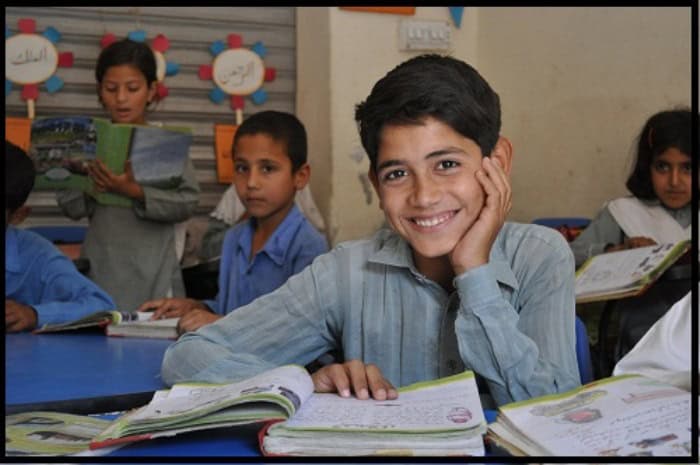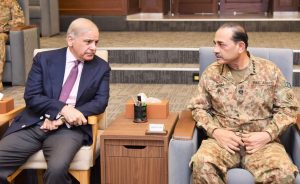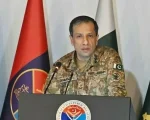Education being the epicenter of all the development, hasn’t itself developed much since the inception of Pakistan. The curriculum has a lot of loopholes; constant reinforcement of traditional subjects (math, physics, chemistry, and biology) makes it even worse. Students barely get time to have some exposure to art subjects or science and technology beyond describing what a computer is and what a mouse is (even though mice themselves have become obsolete).
What if someone wants to become a painter? Or actor? Or anything other than “doctor” or “engineer”? And no, I’m not talking about private or elite private schools. I am talking about low cost private or government schools, where there is teacher-centered learning. While the elite schools sure have much more “creative freedom” there actually isn’t much wiggle room there, either.
Parents, the other stakeholder, are too busy in raising a big family, so they wouldn’t take much interest in their kid’s study matters unless he fails. Then, of course, they would be interested, with the chappal
Apart from this, the government is a big stakeholder for bad implementation of education policies. They should ensure the availability of career counsellors in all the institutes in order to facilitate all the students equally. And it’s a request to parents; for heaven’s sake, give your child the freedom of choice and come out of the stigma of raising them to become a Doctor or Engineer.
It’s perfectly alright for students to opt for fields of their interest, however, things start getting problematic when they don’t assess the market properly and begin to live in a fairy tale as they avoid the creeping reality of looming failure.
The youth of any nation is the most valuable asset and deciding factor about the prosperity and direction of the economy. Sadly, in Pakistan, we haven’t used our assets to an optimum level. Our youth lacks direction and perseverance. Just like in any marketplace every sane person assesses the supply and demand so why should we not act sanely and forecast the supply and demand regarding utilization of our youth. What if we forecast the availability of jobs and then allocate the seats for enrolment in universities? This will not only reduce jobless professionals but will also open new horizons towards other fields. The people will get to know that there are tendency and scope in other genres of education too.
What we need to do is get organized at a national level. Nadra is already computerized with an advanced database. So with collaboration and access to the database along with education department, a database can be created where one can forecast the upcoming professionals in accordance to the need of the hour. As easy as it sounds it would not be. But what is the worth of a fruit that is effortless? And we are talking about a revolution at a national scale with the involvement of youth; it sure would not be a piece of cake. Let us look at the prospects of the idea. We will have a greater sense of direction. There would be more fields and more development. New subjects would be available. Students can choose from a wide variety of options rather than two or three reputable vocations. As far as the database working is concerned, we will be needing data from public and private sectors regarding vacant positions presently and in the future for forecasting. Also, new ventures to be launched and their requirements will be needed so that vocations can be created accordingly. After this, on the other hand, there will be a division of professions either equally or according to the location of opportunity amongst the provinces. After the success of the database for one or two years only then can we start for long term predictions in which we can devise plans for 4 to 5 years in advance. Not only bachelor’s degrees but masters and specialization can also be tapped under this idea. Yes, every idea or policy has its cons which cannot be neglected but certainly can be improved with time. There will be more competition for certain degrees like engineering and medical. There might be an alteration of quota system. Students might skip or waste year(s) to get their desired programs but even in present policies students repeat or wait. Also, the budget for education will have to be enhanced so that the idea can be implemented. Furthermore, experts will be needed to design the database with minimum loopholes. Control check-in universities will have to be observed. The private education sector would most probably difficult to tap as most private institutes are specifically providing certain programs which may be reduced due to the number and allocation of seats. Even if there is a division of public and private seats still there might be a lot of turmoil. But tapping all the sectors and unifying the education system for better results is utmost important.
I would like to conclude with the statement that rather than producing jobless professionals it would be effective to produce needed professionals. There are a lot of professions that are considered unimportant or non-serious in our society. The example is given NUST started geo-informatics engineering a few years back with deals with urban planning and is referred to as the field of future worldwide as it has applications in each and every other field of engineering. But here in Pakistan, it is considered a low merit degree. Let us think collectively for the betterment of our nation and its economy so that we can benefit and extract what our youth has to offer. I conclude this article with the highest of hopes.














